On the surface, you might not think that dog bowls and period products have much in common. Or that reusable cups and telehealth technology go hand in hand. But in a movement as diverse and heterogeneous as this one, it’s not the products or services that bring B Corps together, nor the industries and communities we work within — it’s our shared commitment to using business as a force for good, and being held accountable for it.
From the movement’s beginnings in 2006, this community has mobilised to address the world’s critical challenges, using the mechanisms of the market to collectively shift the very behaviour, systems and structures of the economy itself, and achieve transformative change.
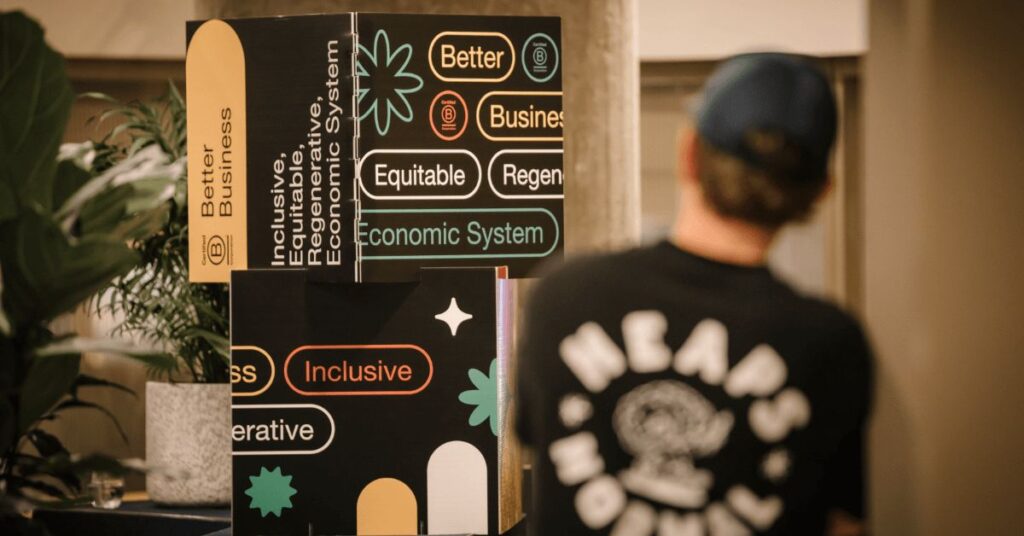
In the face of so many seemingly insurmountable global challenges, we are also witnessing never-before-seen momentum for systems change; a veritable groundswell of activity to create a more inclusive, equitable, and regenerative global economy — one that benefits all.
As businesses who have been independently certified to go beyond business as usual, B Corps are not only uniquely placed to lead this new economy, but they are already doing it.
Every day, a B Corp finds a new and inventive way to meet a problem head-on or seize an opportunity to do things better, developing innovative solutions designed to address issues like climate change, social inequity, access to healthcare, and many many more.
Doing the work across every industry and every continent, here are just 10 B Corps from Australia and Aotearoa New Zealand, sharing their creative solutions for bringing about much-needed change.
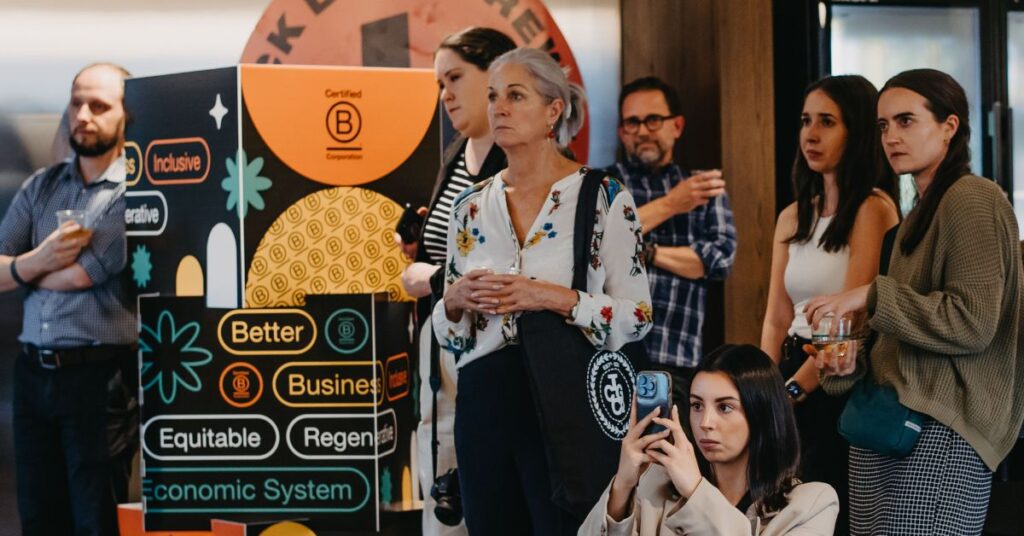
Doing good on purpose. Period.
In our region alone, there are approximately 7.5 million people who menstruate (sources: Aotearoa New Zealand; Australia). That means an average of 16 to 22 disposable sanitary items per period, and around 200,000 tonnes of sanitary waste generated annually, which takes anywhere between 500 to 800 years to decompose. Fantastic.
This waste issue is just one of the compelling reasons why Indigenous-owned period underwear and swimwear company and Certified B Corporation, AWWA, set out to provide modern, low-waste solutions for people with periods.
“Since we started, we’ve prevented 29,478,080 single-use period products from landfill. We have a fully traceable supply chain, use only organic or recycled materials and have donated over 18,971 pairs of period underwear to end period poverty.” — AWWA
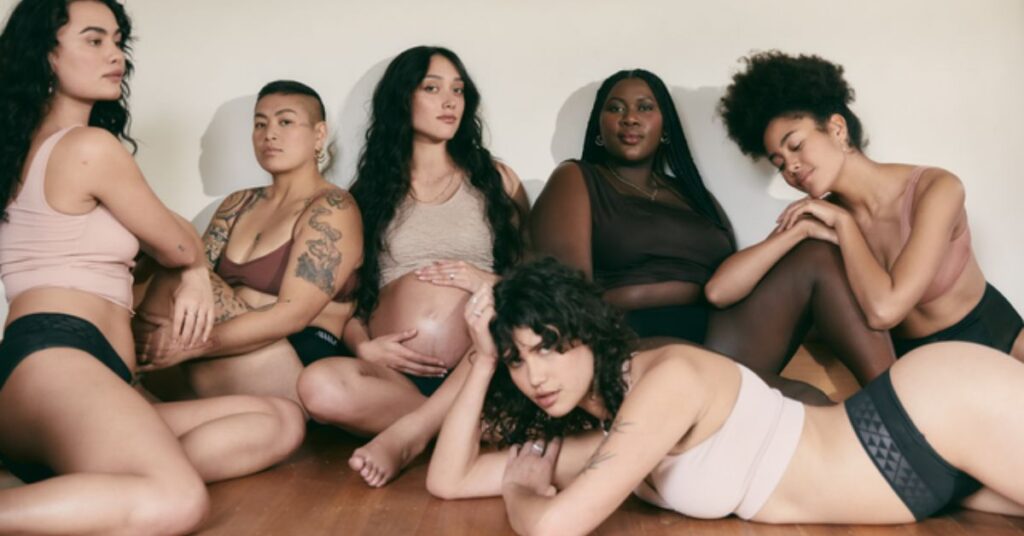
Image: AWWA
Beyond an innovative solution to disposable waste, AWWA’s kaupapa (purpose) is steeped in Māori traditions that celebrate ikura (periods). Designed to reconnect people to their cycles and the planet, AWWA works hard to positively impact the environment and shift the narratives around periods:
“We are providing tools and awareness to help re-Indigenise periods for Māori in Aotearoa. We are educating Dads about periods to de-stigmatise and undo patriarchy, and taking inspiration from Indigenous ways when we look at how we can approach periods with our kids today.”
Finding ways to transform these everyday necessities, which have a huge environmental impact both in terms of waste and production, into items that contribute to closing gender and socio-economic divides is exactly what business for good is all about.
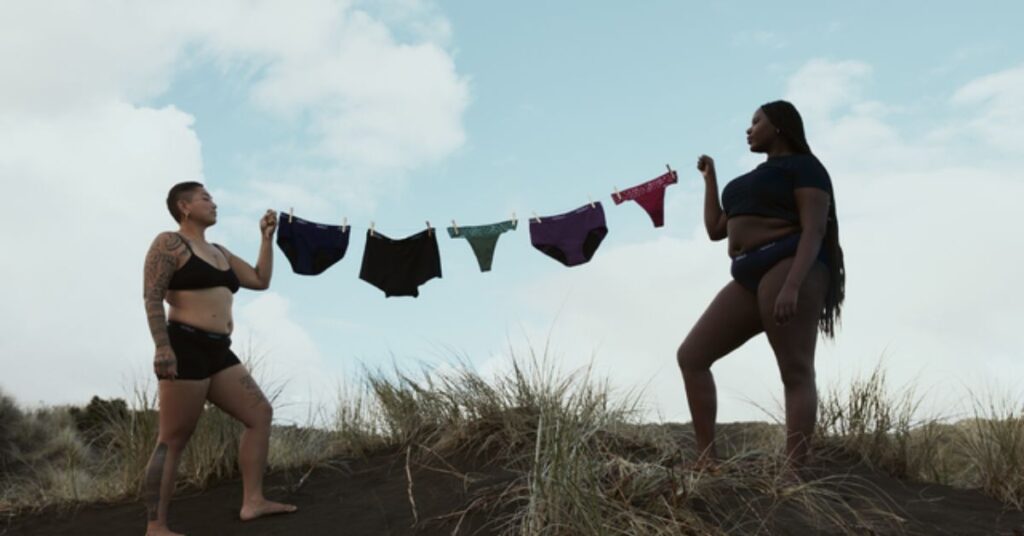
Image: AWWA
READ MORE: How AWWA is providing modern, low-waste solutions for period care ↗
Get your fill of innovation
According to a recent report, Australia is second only to the United States for its consumption of textiles, with 27 kilograms of new clothing and footwear created per person each year and one third of new clothing going directly from factory to landfill.
Rapidly evolving from an essentials subscription model to the world’s first digital textile recycling company, B Corp UPPAREL is testament to the fact that necessity is the mother of invention.
“In 2019, [co-founder] Michael was clearing out his extensive sock drawer and we thought, ethically, we couldn’t throw them out, and we couldn’t donate them to charities because they are underwear. That was what got us thinking.” — Tina Elias, UPPAREL
They put a call out for consumers to return their old socks for up-cycling, and were inundated by the response.
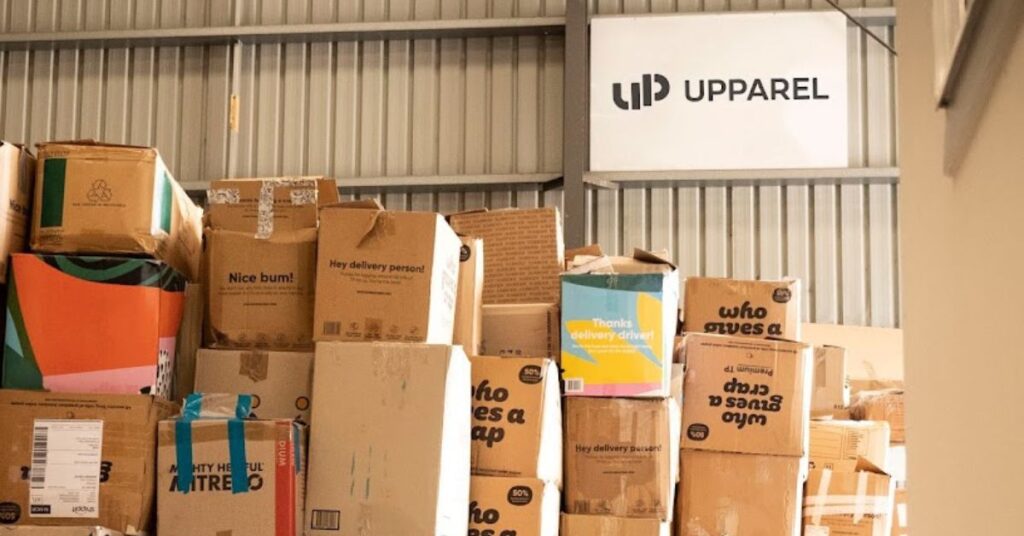
Image: UPPAREL
“After launching a sock recycling program in 2019 to reduce our negative impact, we were propelled into an ever-growing journey that saw us stop selling products, innovate on-shore solutions to textile waste, and provide convenient recycling for customers and businesses right across the country.”
Over the past few years, they’ve successfully diverted over 1,200,000kg of textiles from landfill and given them a new life, also developing a new product that makes a ‘fill’ from unusable second hand clothing, and prevents them from ending up in landfill.
“We are on a mission to eradicate textile waste by leading the way in digital textile recycling solutions — extending the life cycle of textiles through our reuse, repurpose, and recycle model. This is seriously just the beginning for us, we are only getting started.”
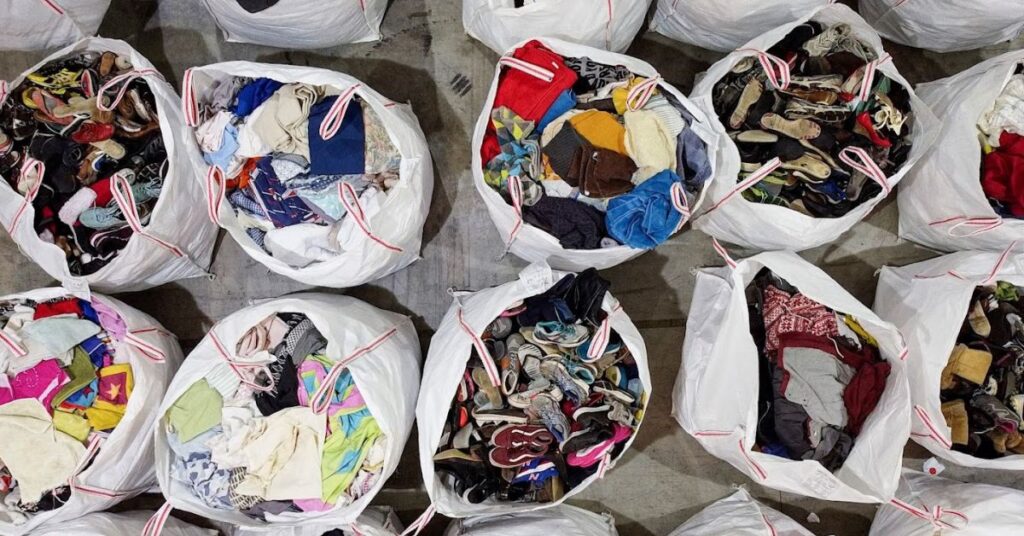
Image: UPPAREL
Lining up to benefit all
We all know by now that plastic takeaway cups are no good for the environment. One plastic-lined coffee cup takes up to 30 years to decompose, often being used for mere minutes before being tossed in the bin; a hefty price for the planet to pay for our convenience. That was, until KeepCup launched in 2009.
“When we started a café business in Melbourne in 1998, disposable cups were entering the public landscape; the signifier of a busy professional life and a vibrant independent coffee scene.” — KeepCup co-founders, Abigail and Jamie
As their business grew, so did their concerns about the environment. Thermoses were largely unsuitable, and cups lined with polyethylene were non-recyclable, so they decided to design and manufacture their own – a barista standard reusable cup for people to enjoy better coffee on the go.
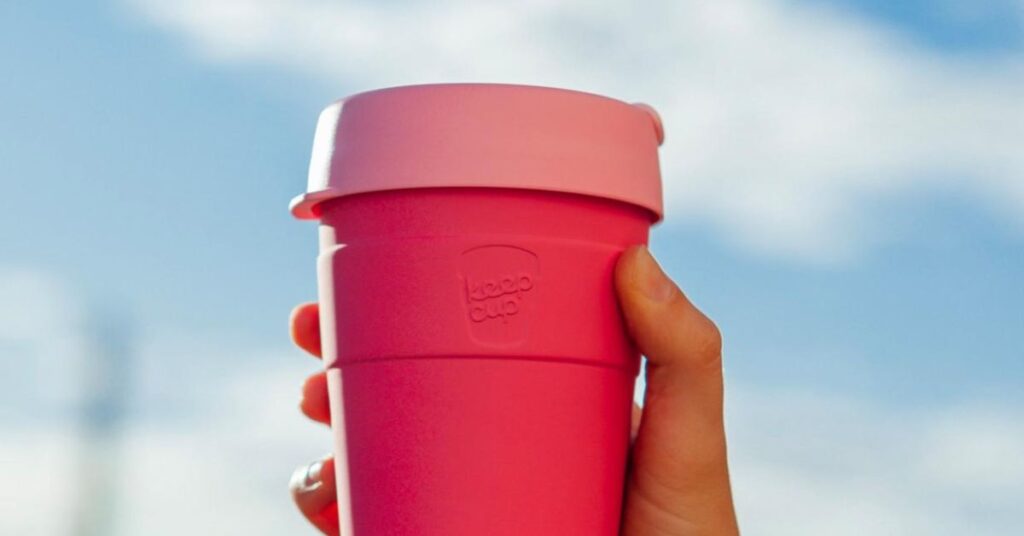
Image: KeepCup
Started from a simple idea: keep it and use it again — KeepCup is now embraced all over the world as a way to eliminate single-use cups, saving billions of single-use cups from landfill each year. Regularly featured as one of the top scoring B Corps in the world under Environment, their offices are solar-powered and they support the circular economy and minimise the impact of supply chains through operations and partnerships with Sea Shepherd and the Bob Brown Foundation.
“Since the very beginning, we’ve partnered with our local manufacturers and designers to ensure our packaging protects the product, is modular, uses minimal material, can be reused and is recyclable at end-of-life. We also produced a publicly available Life Cycle Analysis comparing the impact of KeepCup to a single-use cup, and an online ‘Impact Calculator’ to help our customers quantify the impact of choosing reuse over single-use.” — KeepCup
Their journey of changing consumer behaviour has not been dissimilar to that of the B Corp movement. For a while there, carrying a KeepCup was “like being in a secret club; a nod to aspirational behaviour for the world”. Now, with their innovative solution and measurable impact, this behaviour change is now established in the mainstream, and continuing to “change the sustainability conversation in word and deed”.
It’s thanks to businesses like KeepCup, that there are so many options to choose from across this community today. Head over to the B Corp Directory and search ‘cup,’ ‘reusable,’ ‘bottle’ to make the sustainable swap.
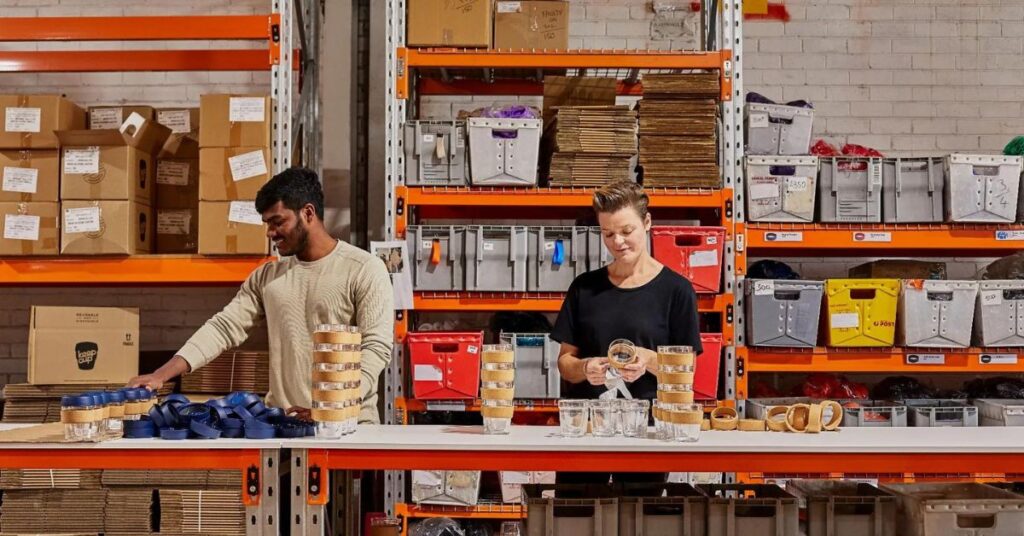
Image: KeepCup
Better, not perfect
The fact that the fashion industry is one of the largest polluting industries in the world is something that not only keeps many B Corps up at night, but it propels them out of bed in the morning, determined to create a better world.
The production and distribution of crops, fibres and garments used in fashion all contribute to differing forms of environmental pollution, including water, air and soil pollution. That is on top of the millions of tonnes of clothes being thrown into landfill annually.
“Globally, 87% of all disposed textiles is sent to landfill or incinerated; 12% is mechanically recycled by cutting it or shredding it into fibre, insulation material or rags; and less than 1% is chemically recycled back to reusable raw materials. We believe the fashion industry can regenerate our natural environment instead of depleting it if we measure our impact and invest in proven methods to counteract it.” — The Common Good Company
Like many of their fellow B Corps, The Common Good Company sees a problem and meets it with innovation, hard work and transparency, using recycled materials and ethical practices to manufacture apparel to benefit all.
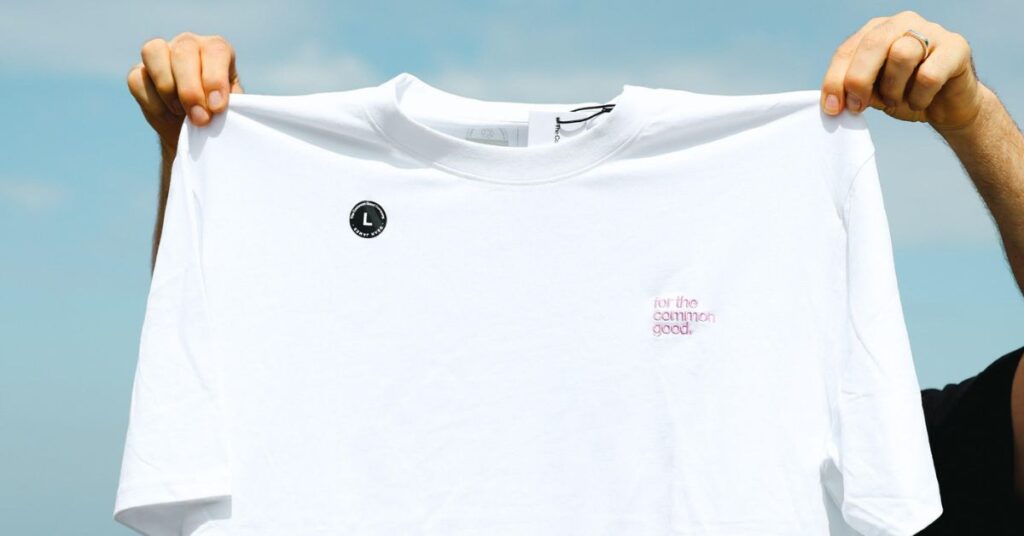
Image: The Common Good Company
By using recycled pre-consumer textile waste and Recycled Polyester in their garments, they eliminate unnecessary waste, water use, land use, and pollution typically involved with the production of yarns made from so-called ‘virgin’ materials.
“Recycled materials over ‘virgin’ materials in production. Manufactured in a certified Green Factory. Sea Freight over Air Freight. Domestic Carbon Neutral Delivery. Recycled Packaging. Fair Living Wage, always.”
In 2022 alone, that equated to: 2433.6kgs of textile waste saved from landfill and over 50,000 plastic water bottles; and preventing the use of over 6 Olympic size swimming pools worth of water in the cotton production process. Their motto of ‘better, not perfect,’ along with their products, is providing a blank canvas for businesses and consumers alike to paint a better picture for the world.
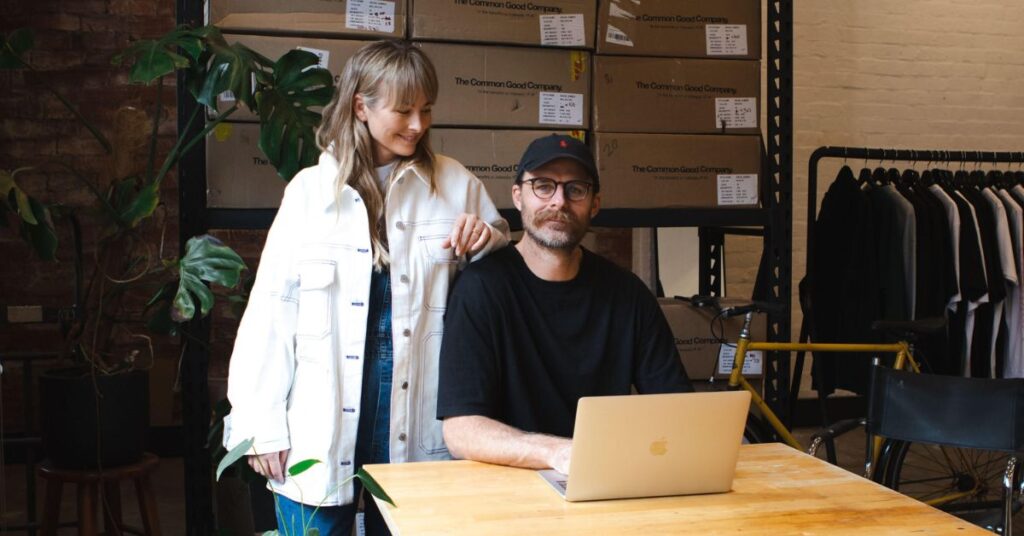
Image: The Common Good Company
Wrappers making mic drops
If all of the world’s single-use plastic was replaced with compostable bioplastic made from food waste, forestry waste, wastewater, seaweed, algae or other bio-waste materials, then we could make an immediate and profound impact on peeling back the effects of climate change and plastic pollution. *Thud*.
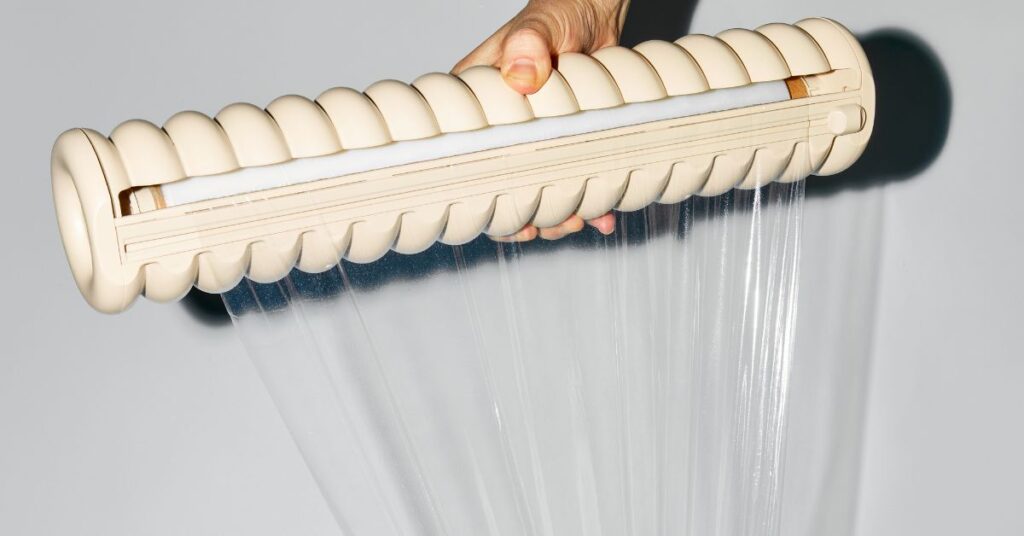
Image: Great Wrap
B Corp Great Wrap has a team of bio-designers, engineers and scientists pioneering a new paradigm of packaging technology, going beyond business as usual for the planet by grappling with the global supply chain.
“The global supply chain creates a vast amount of waste that often the world doesn’t get to see and around 10% of global CO2 emissions are currently the byproduct of plastic manufacturing.” — Great Wrap
Seeing thin film plastics as an opportunity to go beyond and reinvent consumers’ expectations of materials they use everyday, they built Great Wrap because there simply wasn’t another option.
“Our materials push the boundaries of biopolymer science; reimagining today’s materials to solve tomorrow’s problems. Our stretch wrap is the first in the world to use potato waste as the main raw ingredient, and we’re also the first in the world to manufacture a compostable catering and pallet wrap — two essential products that are used globally with no prior conscious solution.” — Great Wrap
Inspired by fellow B Corps like Who Gives A Crap — another company making a product that is traditionally unglamorous, something worth getting excited about — the perfectly rhymed Great Wrap represents the very definition of innovation and creative problem-solving.
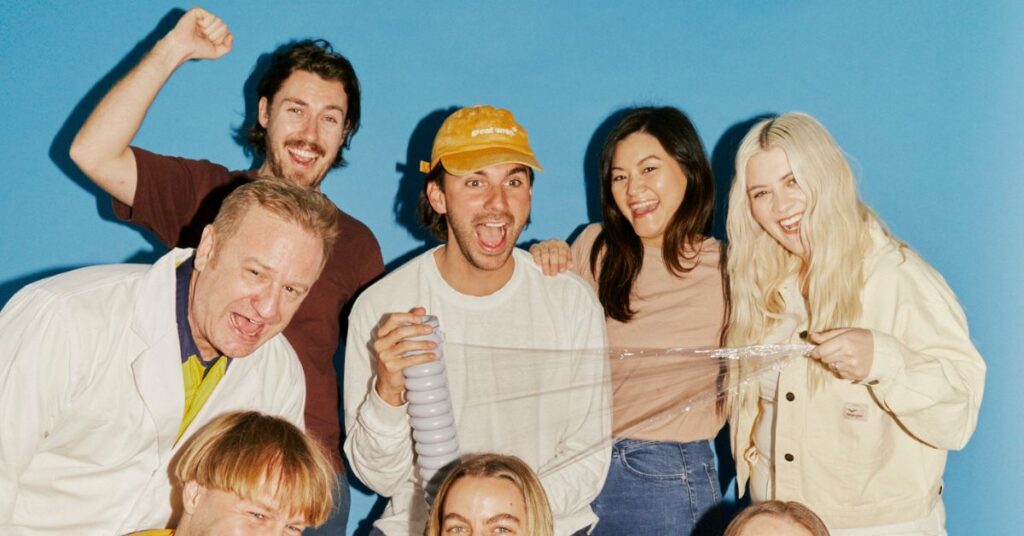
Image: Great Wrap
Fantastic POLLAST!C
What’s better than packaging that is sustainable? Packaging that actively works to improve the state of the planet through regeneration. For Better Packaging Co., they go beyond ‘sustainable’ packaging solutions to ‘regenerative’ ones:
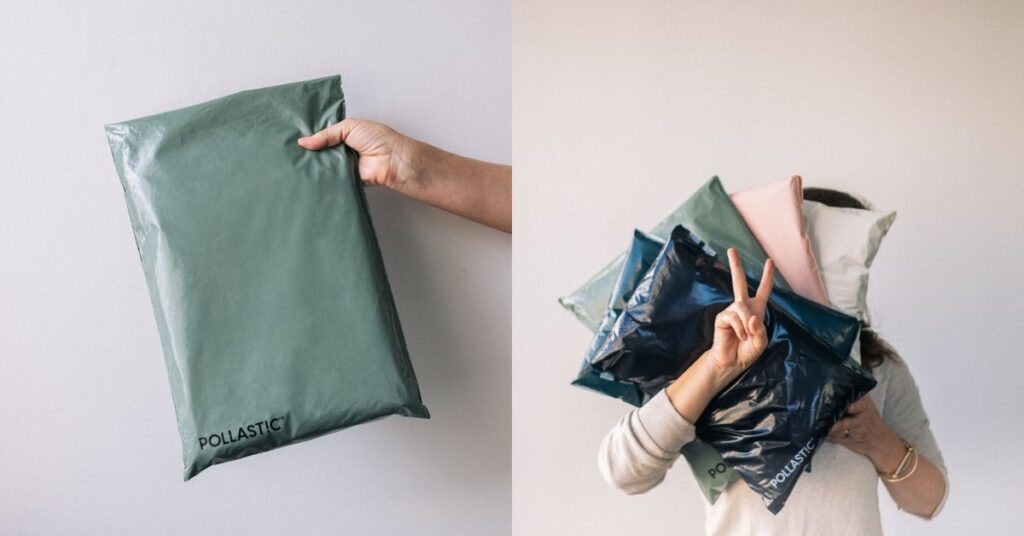
Image: Better Packaging Co.
“To truly begin to undo the damage humankind has done to the environment, we need to go beyond sustainability and adopt a regenerative approach instead. Our POLLAST!C range is made from 100% ocean bound plastic pollution reduced before it enters the ocean. Put simply, regeneration makes things better, and that’s what we’re all about because, quite frankly, the planet deserves better.” — Better Packaging Co.
And while they believe there is no perfect solution to catastrophic crises like climate change, they do believe that a commitment to continuous improvement, underpinned by transparent communication, innovative design and impeccable credentials will change the world.
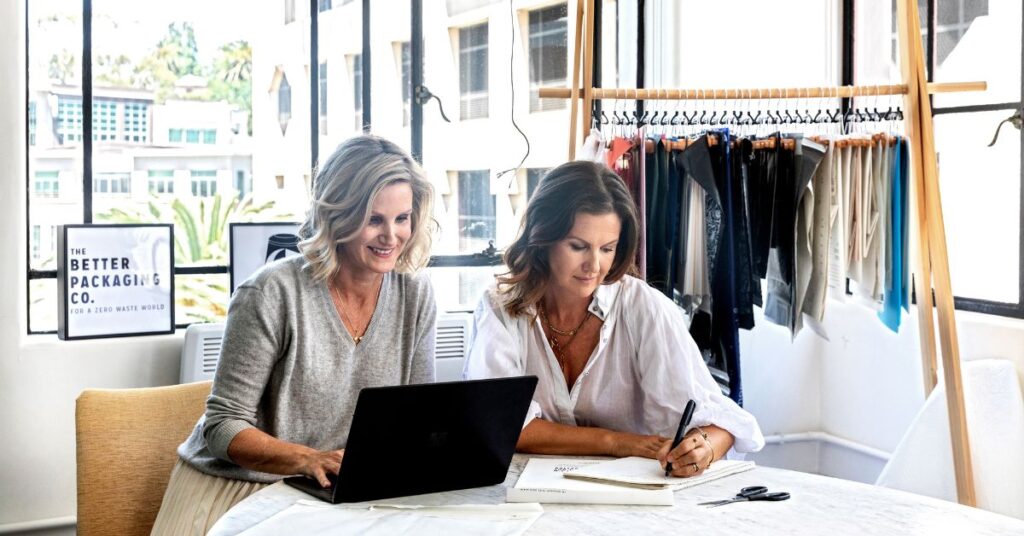
Image: Better Packaging Co.
Don’t forget our furry friends
For B Corp Bohemi Handcrafted, the pet industry is unfortunately one that doesn’t receive a lot of exposure for its “harmful actions” in the same way that the human fashion industry does.
“We hear about human’s fast fashion quite regularly, but when it comes to pet accessories, toys, bowls, bedding, and even food, there is more often than not clever marketing and greenwashing used with no actual transparency. Sadly most pet products are made using toxic materials and follow unethical and environmentally damaging practices.” — Bohemi Handcrafted

Image: Bohemi Handcrafted
With studies showing that Australia has one of the highest pet ownership rates in the world, there are over 28.7 million animals considered as pets in Australia, a significant increase on pre-pandemic numbers. And it’s a similar story in Aotearoa, with the pooch population growing faster than the people’s.
“On a global scale this is extremely damaging and needs to be brought to light so we can educate consumers and encourage businesses in the pet sector to do better. At Bohemi, we believe not only that our pets deserve better, they need better for their health and wellbeing.”
Providing honest and reliable, hypoallergenic pet wear, Bohemi ensures that pets and the planet sit atop their list of stakeholders from day one, knowing our furry compadres and the Earth will be better for it.
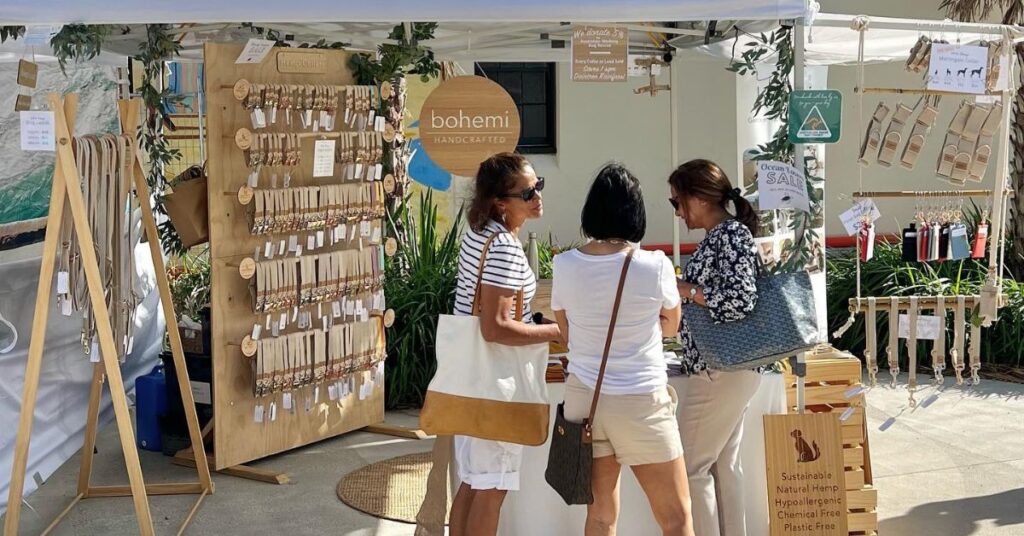
Image: Bohemi Handcrafted
There are no innocent bystanders
This is the bold catch-cry of a B Corp dedicating its time and resources to providing more sustainable alternatives in the construction process. Tonnes of waste material (in the tens of millions) – including bricks, timber, concrete, metal and more – go into landfill every year. In an industry “so commercially motivated”, they see more often than not the quickest and cheapest options win out.
Revival Projects’ pioneering work in the built environment is founded on a belief that indulgence has become normalised and celebrated in our global economy. Their solution? Resourcefulness, in every sense of the word.
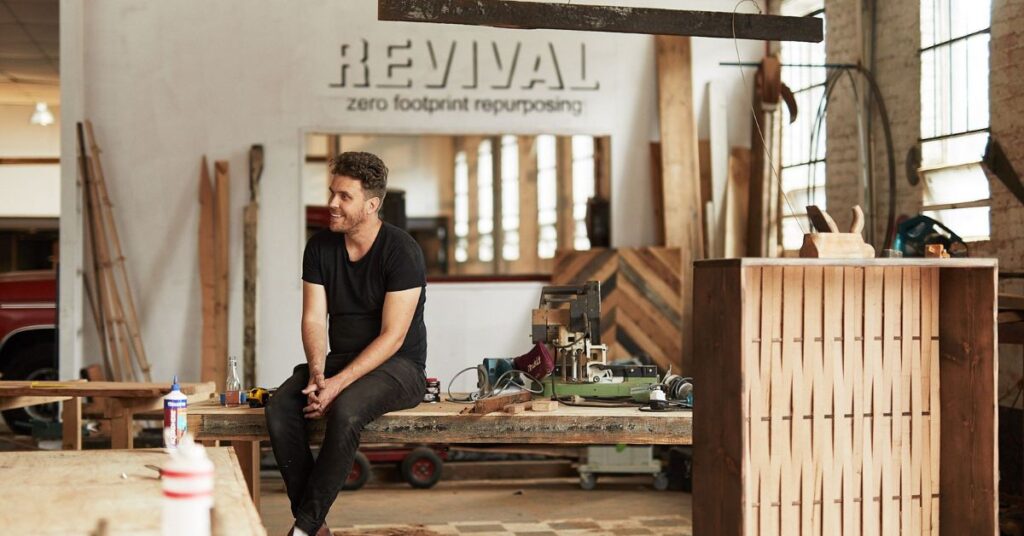
Image: Revival Projects
“By removing barriers-to-entry associated with adopting a sustainable approach to design and construction, we want to help people reduce carbon, reduce waste, reduce deforestation, reduce transport, and reduce consumption.” — Revival Projects
In a bid to make salvaged building materials and sustainable building methods more accessible, Revival Projects has developed one of the world’s first free repurposing hubs — inviting people to use their spaces, free of charge, to store demolished materials while their project comes to life, or until repurposing those materials becomes possible.
“At the moment we throw so much away, only to then destroy the planet in harvesting and consuming new materials. We want to see people use the sh*t they already have to help build your new sh*t.”
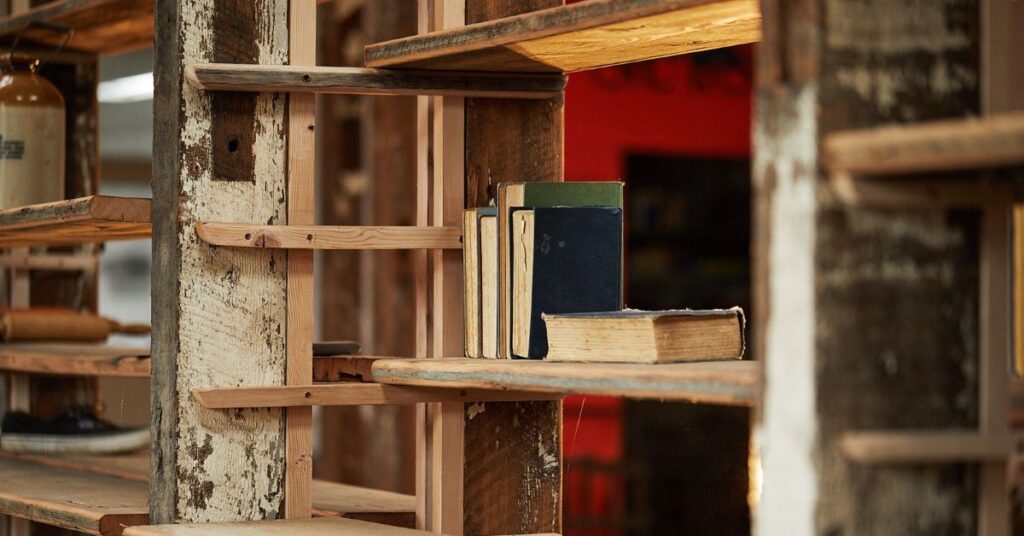
Image: Revival Projects
Supercharging the energy transition
This movement, and the broader social enterprise sector, is predicated on the enormous potential of the economy to drive positive social and environmental change. Through independent and holistic certifications, collective action policies, and a focus on innovation, businesses have a unique opportunity to alter the conditions under which markets operate by using the mechanisms of the market itself.
For B Corps like Motion Energy, businesses can incentivise ‘doing the right thing,’ in a way few other actors can. By promoting the rapid adoption of clean transport initiatives globally, they ensure that no one is left behind as the transition gathers pace.
“We have a zero emission ambition. We’re placing a value on clean air and climate, for the benefit of all. Solely focused on the provision of true impact capital to the clean transport sector, we utilise robust reporting frameworks in conjunction with verified contributions across nine of the Sustainable Development Goals. This directly complements and encourages further investment by our partners towards a cleaner transport future.” — Motion Energy

Image: Motion Energy
Air pollution is one of the most severe global health risks, and the majority of the burden is borne by low- and middle-income populations. With the World Health Organisation (WHO) identifying that around 99% of the world’s population lives in air quality below their accepted limits, Motion Energy makes one thing crystal clear: “there is no safe level of air pollution”.
Striving to supercharge the energy transition and encourage a rapid adoption of low emissions transport, Motion Energy believes that everyone deserves the right to clean air, stronger communities and a healthier planet. With a unique and innovative platform focused on delivering more meaningful carbon credits, designed specifically for the transport sector, Motion Energy is helping to scale the social, environmental and economic benefits of a zero emissions transport future.
“We go beyond the lagging national policies. We go beyond the infrastructure challenges. We go beyond by supporting not only the uptake of electric vehicles and wider charging networks within Australia and the so-called ‘Global North’, but also in Africa and other areas of the so-called ‘Global South’.” — Motion Energy
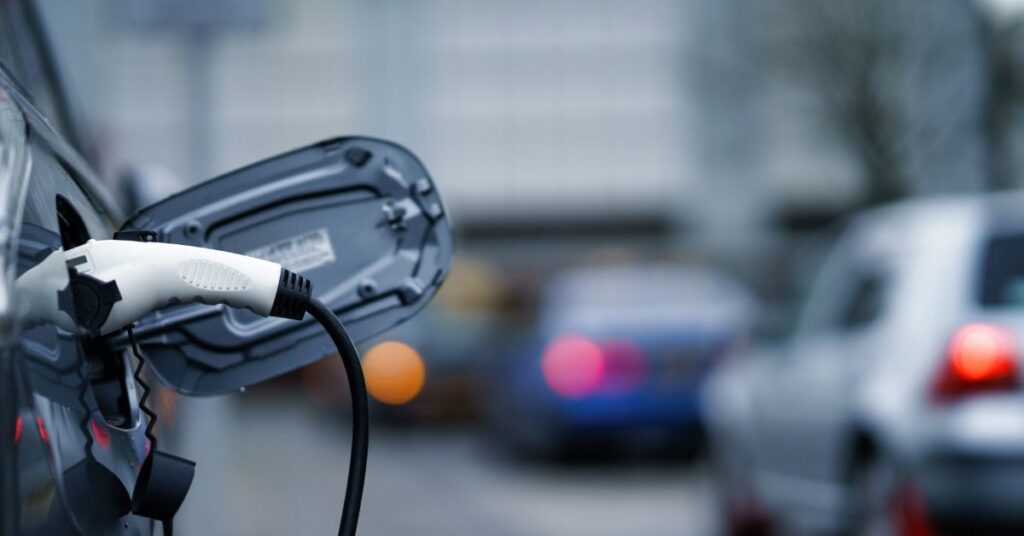
Image: Motion Energy
Driven by soul
Named after Atticus Finch from the famous novel To Kill a Mockingbird by Harper Lee, Atticus Health is a social enterprise set up by doctors who are passionate about helping every patient maximise their life. From humble beginnings, they have grown to deliver a range of healthcare services around South East Melbourne and Victoria, as a team Driven by Soul.
“There is a space between what happens to us, and how we respond. That space is really an awareness, our ability to reflect and look at our own situation, as if we were in fact a fly on the wall, observing our own life.” — Atticus Health
For Atticus Health, this awareness can help each one of us make the best decisions, driven by a set of shared values that allows them to reflect, find connection and treat people equally, with compassion and unconditional love.

Image: Atticus Health
“Through our function as a provider of medical services, our mission therefore is to increase individual and collective peace, love, quality, equality and self determination in life. We are, quite literally, Driven by Soul.” — Atticus Health
The team at Atticus Health upskill and develop carers to be true patient advocates. They focus on building relationships to close gaps in the health system and utilise innovative Video Telehealth technology to connect GPs, carers and patients, and make healthcare more accessible for all.
“As a provider of medical services, fundamentally we learn so much about the fabric of a community. We share in its ups and downs. And, we recognise how great an impact this work can have on the outcomes of health, both for the individual and for the collective.” — Atticus Health
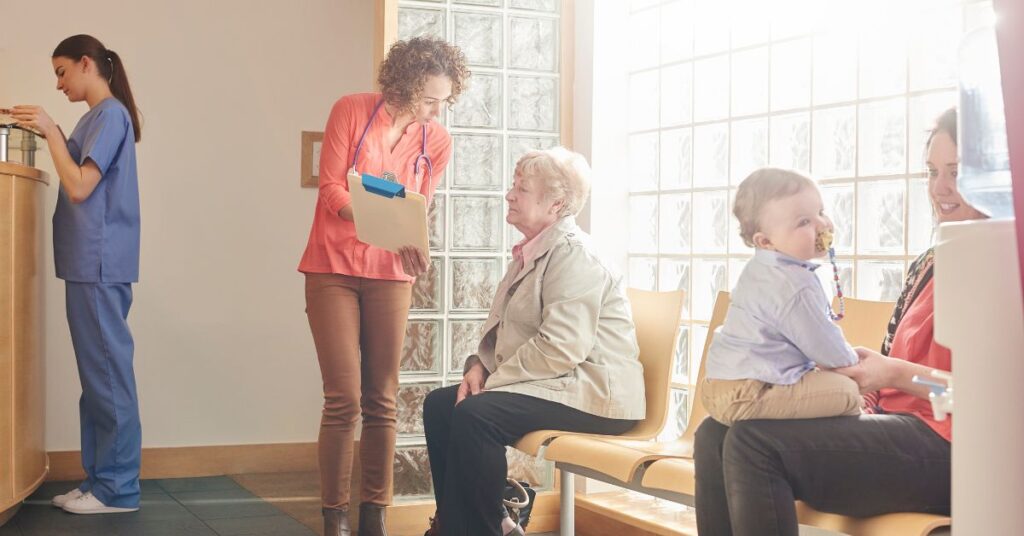
Image: Atticus Health
Innovating for a more regenerative world
Every decision a business makes has a vast ripple effect that impacts people, communities and the environment far beyond its immediate stakeholders. And while businesses have immense power to address the world’s most critical challenges, this power comes with great responsibility and an unparalleled opportunity to wield the mechanisms of the market as a force for good.
Together, these 10 B Corps, and the thousands more like them, are shifting the global economy to one that prioritises innovation and regeneration over profit and avarice. By articulating and amplifying their stories, we inspire more businesses to create stories of their own, sparking circular abundance and infinite possibilities for business as an equitable force for good. What innovative and imaginative ways will you come up with next to create a world that benefits all?
Thank you to the following B Corps for sharing their innovative approaches to global challenges: AWWA, UPPAREL, KeepCup, The Common Good Company, Great Wrap, Better Packaging Co., Bohemi Handcrafted, Revival Projects, Motion Energy, and Atticus Health.

